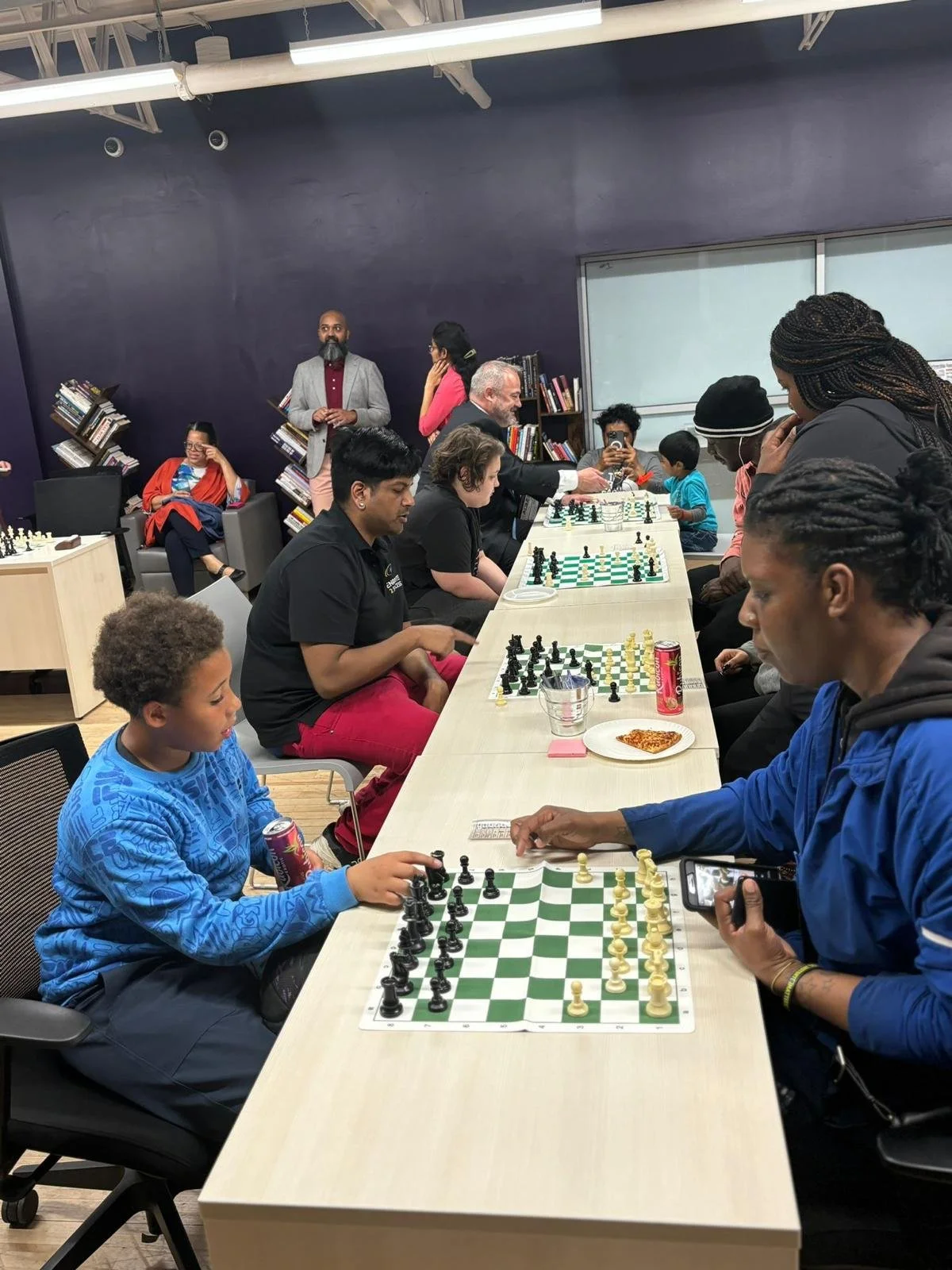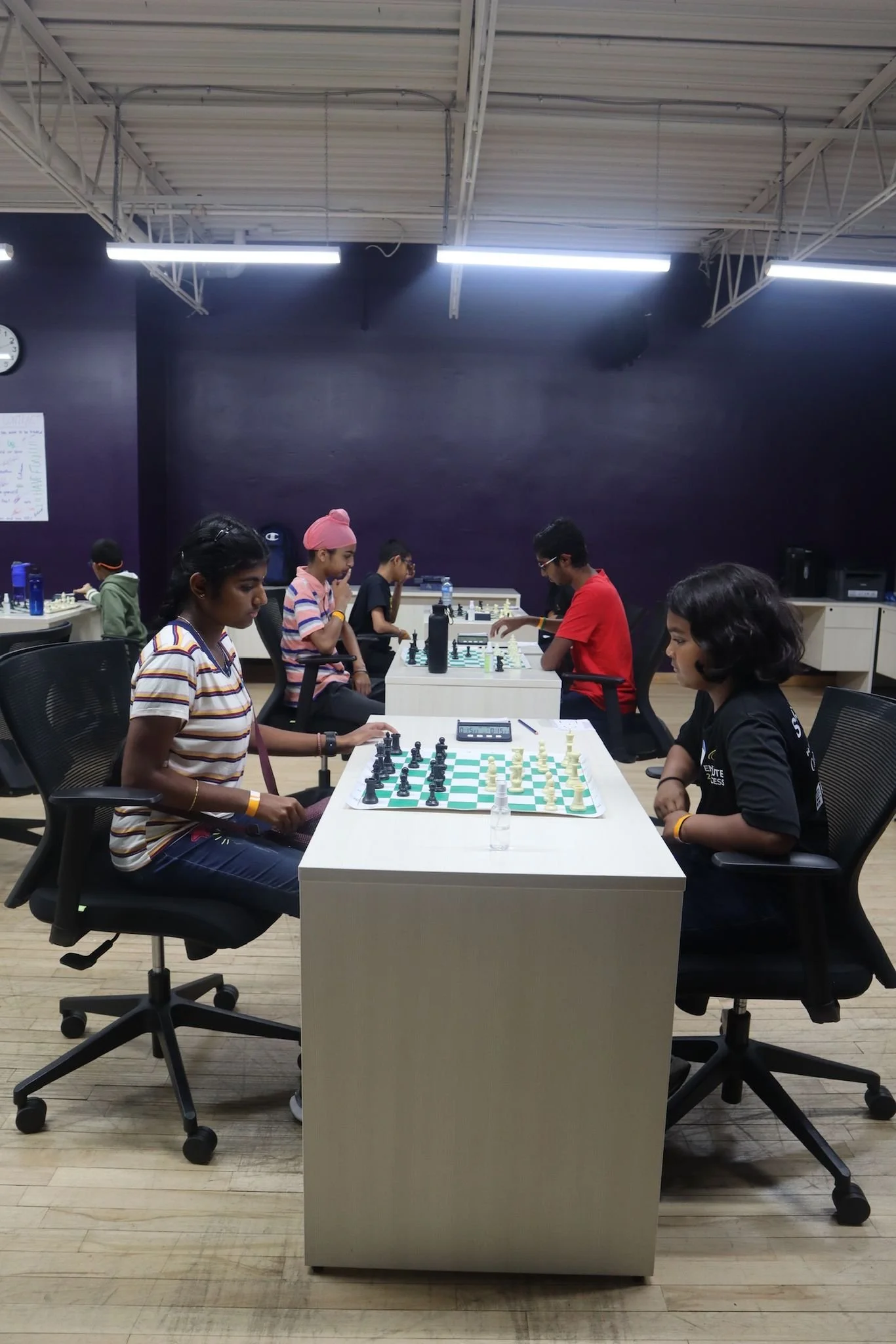08-06-2025 • Written by Enroute 2 Success
The Benefits of Chess: Scientific Studies
At Enroute 2 Success, we believe every young mind deserves the chance to thrive—and sometimes, that journey starts with something as simple as a chessboard. This timeless game sharpens focus, fuels critical thinking, and builds confidence in students, opening doors in and beyond the classroom.
Chess Builds Critical Thinking and Confidence in Youth
Academic and Cognitive Thinking Benefits
Research shows that chess training transfers to classroom success. A large Danish study found that replacing a weekly math lesson with a chess-based math lesson raised students’ test scores, especially among the most disengaged, suggesting chess “may be an important and effective tool” for improving math ability. Meta-analyses confirm this: chess instruction yields moderate improvements (measured by Cohen’s g) in overall cognitive and academic skills, with mathematics benefiting most. By engaging pattern recognition and strategic thinking, chess strengthens the same analytical faculties needed for STEM learning and standardized tests [4].
In practice, chess players outperform their peers in problem-solving and reasoning tasks: children trained in chess show improved spatial reasoning, planning, memory and decision-making skills directly linked to better grades [2].
Notably, a U.S. evaluation of an elementary chess program found that participants scored significantly higher on state math assessments than those who were a part of the chess program. Additionally, a higher percentage of chess members met or exceeded math benchmarks (93.0% vs 88.3% statewide) [5].
Executive Skills & Focus
Chess inherently teaches executive functions and concentration. As one education review notes, chess “gives the student the habit of concentrating on a single subject” [3], instilling focus and patience. Players learn to anticipate consequences several moves ahead, testing hypotheses and managing impulses; this constant planning and reflection builds critical thinking and meta-cognition [4]. Not only this, but good chess players aged sixteen to eighteen years old presented high spatial, numerical, administrative-directional, and paperwork abilities. This means that because chess requires an individual to pull from a range of aptitudes, a range of aptitudes and then refined. Dr Robert Furgeson reflects that these findings indicate that “a large number of aptitudes all work together in chess”. Given the multifacetedness of the game of chess, it is no wonder that in June of 1999, the International Olympic Committee recognized chess as a sport [1].
In short, children who play chess routinely practice decision-making, memory and self-control – cognitive skills that generalize to all school subjects [2]. Teachers and researchers report that chess instruction develops logical thinking and creativity beyond what traditional drills achieve [3].
Confidence and Persistence
Chess also promotes a growth mindset and resilience. Educators observe that regular play “positively affects and develops students’ personality and character,” giving them “a sense of self-confidence” as they solve challenges [3]. Losing a game teaches students to analyze mistakes and persevere, a feedback-rich environment unlike many sports. In effect, children learn that effort and careful reasoning lead to success, bolstering self-esteem and grit.
Case Study – Proven Outcomes
Program evaluations underscore these benefits. The Portland “Chess for Success” initiative (NWREL) tracked Title I students for three years. It found chess participants’ math scores rose significantly above a matched control group [5]. Observers noted the program “accomplished its primary goal of training and enabling children to be patient and analytical in all problem-solving situations,” linking these new skills to higher achievement [5]. By 2006, 93% of the chess students met/exceeded Oregon math standards, outpacing district and state averages [5]. The report concludes that offering chess “provides children… the opportunity to build and develop important skills necessary for success in school and life” [5].
Thank you for joining us on the E2S Blog! In sum, science-backed studies demonstrate that chess instruction sharpens focus, enhances academic performance (notably in math and reading), and builds the strategic and emotional skills valued in higher education and the workplace. Chess fosters patience, resilience, and academic excellence. Let’s continue to champion programs that empower youth to think strategically, persevere through challenges, and lead with confidence—one move at a time.
Is there a topic you want to hear more details about? Want to get involved? Please reach out to us, and we would be happy to discuss further!
Works Cited
Dauvergne, P. (n.d.). Chess as an educational tool. New South Wales Junior Chess League. https://www.nswjcl.org.au/Resources/Dauvergne/PD_paper.pdf
Ortiz-Pulido, R., Ortiz-Pulido, R., García-Hernández, L. I., Pérez-Estudillo, C. A., & Ramírez-Ortega, M. L. (2019). Neuroscientific evidence support that chess improves academic performance in school. Revista
Mexicana de Neurociencia, 20(4), 194–199. https://doi.org/10.24875/RMN.M19000060
Karakuş, G. (2023). Chess and education. Educational Considerations, 49(2). https://doi.org/10.4148/0146-9282.2365Rosholm, M., Mikkelsen, M. B., & Gumede, K. (2017). Your move: The effect of chess on mathematics test scores. PLoS ONE, 12(5), e0177257. https://doi.org/10.1371/journal.pone.0177257
Yap, K. O., Roccograndi, A., & Woo, A. (2006). Chess for Success evaluation: Final report. Northwest Regional Educational Laboratory. Retrieved from https://media.oregonlive.com/beaverton_news/other/Chess%20for%20Success%20Final%20Evaluation%20Report%2010-31-06%20%282%29.pdf





